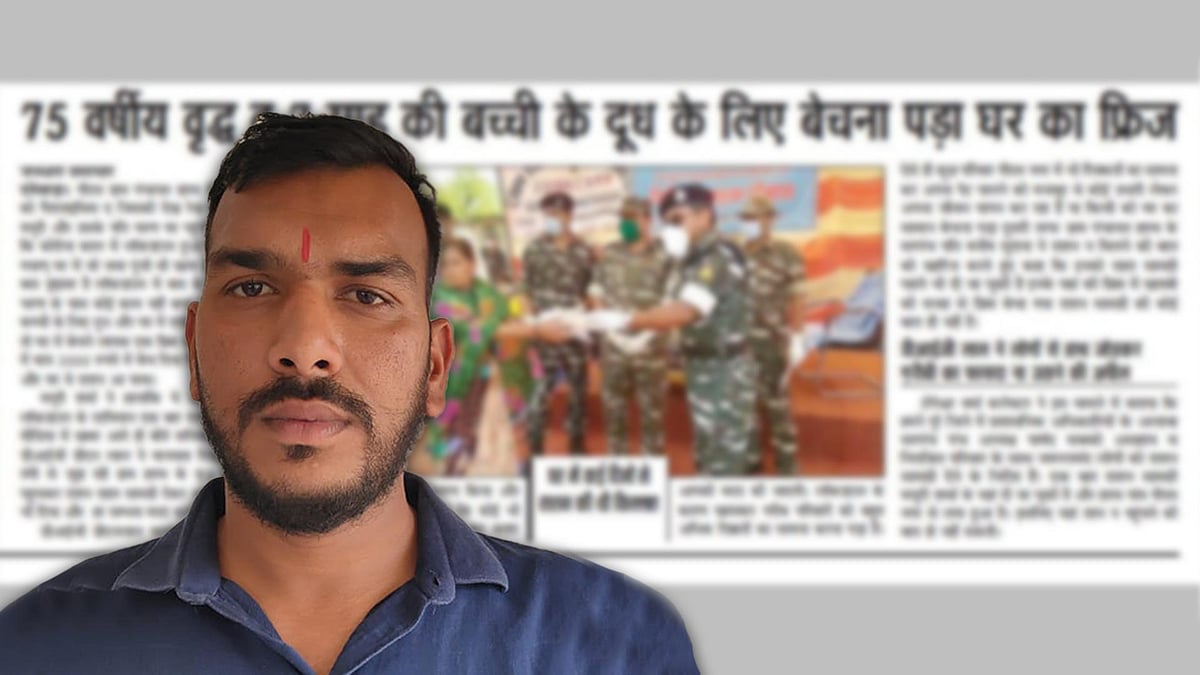UP journalist interrogated by police for story on low quality PPEs
‘Such interrogations have to happen officially, they cannot question me about my sources and contacts over tea.’
A journalist in Uttar Pradesh’s Lucknow was interrogated by the Special Task Force of the state’s police after reporting on low-quality personal protective equipment kits supplied to hospitals and colleges in the state.
On April 17, Lucknow-based journalist Manish Pandey of News1 India, a Hindi news channel, broke the story of a letter sent by the Directorate General of Medical Education and Training, Uttar Pradesh, to bureaucrats in the state’s medical education department on April 13. The letter said that the PPE kits supplied to eight hospitals and medical colleges in the state did not meet the required quality standards.
The letter specifically stated that the length of the kits’ gowns were inadequate by set parameters. Pandey’s story raised questions about bureaucrats who supply below par equipment in the middle of a Covid-19 crisis.
On April 30, 13 days after the story was broadcast, Pandey was asked to visit the Special Task Force headquarters in Lucknow by assistant superintendent of police Vishal Vikram Singh. On May 1, Singh interrogated Pandey for nearly an hour, between 11 am and 12 pm. Singh made constant inquiries about the source who leaked the letter to Pandey.
Pandey, who has been a journalist for more than a decade, did not reveal any information. The ASP also inquired about his background and said he should update the STF “unofficially” were he to find out who leaked the letter.
“Such interrogations have to happen officially,” Pandey told Newslaundry over the phone. “The STF did not misbehave with me, but they cannot question me about my sources and contacts over tea. They should have served a notice.”
Asked why he thought he was interrogated by the STF, Pandey said that the story had caused embarrassment to the state government. “It was also amplified by the Samajwadi Party and the Congress party on social media, who demanded a high-level investigation in the matter,” he added.
In a News1 India segment on Friday, the channel’s editorial team expressed surprise that the Adityanath government seemed more keen on finding the person who leaked the letter to Pandey than investigating officials who procure inferior quality PPE kits.
Newslaundry spoke to ASP Singh of the Special Task Force, who denied that Pandey was summoned for an interrogation. “I just called him over for tea for 5-10 minutes,” Singh alleged, contrary to the journalist’s claim that the meeting went for nearly an hour. “We’re talking to many journalists to find out who leaked the letter. It was not an interrogation.”
Since 2017, the Uttar Pradesh government under Chief Minister Ajay Bisht, popularly known as Yogi Adityanath, has overseen a significant fall in press freedom and safety of journalists. Journalists have been booked, arrested, assaulted and harassed for doing stories critical of the state government.
***
Independent media is on the frontlines of the coronavirus crisis in India, as elsewhere, reporting from the ground and asking hard questions that need answers. Support independent media by subscribing to Newslaundry today, and pay to keep news free.
 Chhattisgarh journalist gets notice for reporting on woman’s lockdown plight
Chhattisgarh journalist gets notice for reporting on woman’s lockdown plight 'It's a police state': Andaman journalist taken away from coronavirus red zone, arrested over tweet
'It's a police state': Andaman journalist taken away from coronavirus red zone, arrested over tweet
